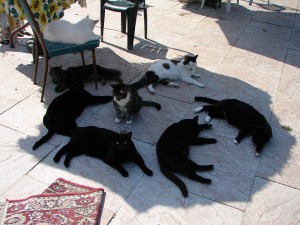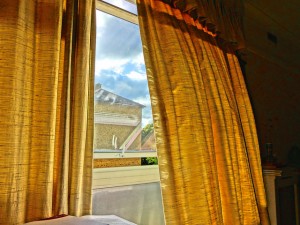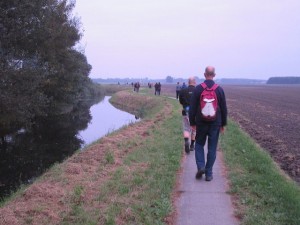special, particular, peculiar ![]()
[adjective/adverb]
"Bijzonder" can both be used as an adjective or an adverb. When used as an adverb it is commonly translated as "very", see the examples. The "ij" in "bijzonder" is pronounced as "ie".
Note the use of "iets/niets bijzonders": something/nothing special.
Examples:
– "Goedemiddag, kan ik u helpen, zoekt u iets bijzonders?"
("Good afternoon, can I help you, are you looking for something special?" Note that it is typically Dutch to want to be left alone at first when looking around in a store, reason why Dutch shop personnel seem uninterested at first. Although some of them really are 😉 )
– "Wat was er aan de hand?" – "O, niets bijzonders, een opstootje…"
("What was going on?" – "Oh, nothing special, a small fight…")
– "Ik ben nog steeds een beetje stil van de film…" – "Ja, hij is heel bijzonder vind je niet…"
("I'm still impressed by the film…" – "Yes, it is very special dont't you think so?" Lit. "I'm still a bit quiet because of the film".)
– "Meneer, u heeft een bijzonder kind! Misschien is het wel hoogbegaafd!" – "Nou, dat lijkt me bijzonder onwaarschijnlijk, maar bedankt voor het compliment!"
("Sir, you have a very special child! Perhaps it is highly gifted!" – "Well, that seems highly unlikely, but thank you for the compliment!")
– "Heb je gehoord dat Frank een kluizenaar is geworden?" – "Nee, maar het verbaast me niks; hij was altijd al een beetje bijzonder."
("Did you hear that Frank has become a hermit/recluse?" – "No, but it does not surprise me one bit; he always was a bit peculiar.")
– "Alan daarentegen is een gewone jongen, een bijzonder gewone jongen kan ik wel zeggen."
("Alan, on the contrary, is an ordinary guy, a very ordinary guy I may say.")
– "Heeft het u gesmaakt?" – "Zeker, ik heb bijzonder lekker gegeten, dankuwel."
("Did you enjoy your meal?" – "Absolutely, it was very tasty, thank you.")
Expressions:
– "In het bijzonder": in particular.
Related words:
– Speciaal: special [adjective]. If you don't like the Dutch fries with mayonnaise you can order a 'patat speciaal'. The sauce you'll get is a mix of mayonnaise and ketchup (or curry sauce) and… chopped onions 🙂
– Ongewoon: unusual [adjective].
Example:
– "Vind je dat deze broek bij deze trui past?" – "Uhm, ik vind het een beetje een ongewone combinatie als ik eerlijk ben!"
("Do you think these pants match this jumper/sweater? – "Ehm, to be honest, I think it is a bit of an unusual combination!")
– Apart: different, separate, distinct [adjective]. Note the infamous word 'apart-heid': "separate-ness". This word is not used in Dutch other than in the context of the former regime in South-Africa.

 The verb “harden” translates as “to harden”, “to toughen up” or “to bear/stand”. In case of the latter, one often uses the phrase “niet te harden” to say that something is unbearable. This can basically be anything, see the examples.
The verb “harden” translates as “to harden”, “to toughen up” or “to bear/stand”. In case of the latter, one often uses the phrase “niet te harden” to say that something is unbearable. This can basically be anything, see the examples. “Tocht” is the suction of the wind in a room when you for example open windows on opposite sides. The verb is ‘tochten’. A common expression is ‘op de tocht komen te staan’, see below.
“Tocht” is the suction of the wind in a room when you for example open windows on opposite sides. The verb is ‘tochten’. A common expression is ‘op de tocht komen te staan’, see below. “Tocht” can also be used for ‘journey’ or ‘trip’. Duration of the ‘tocht’ should be clear from context, a ‘tochtje’ is a short trip like an outing. A ‘dagtocht(je)’ is an outing for the day.
“Tocht” can also be used for ‘journey’ or ‘trip’. Duration of the ‘tocht’ should be clear from context, a ‘tochtje’ is a short trip like an outing. A ‘dagtocht(je)’ is an outing for the day.